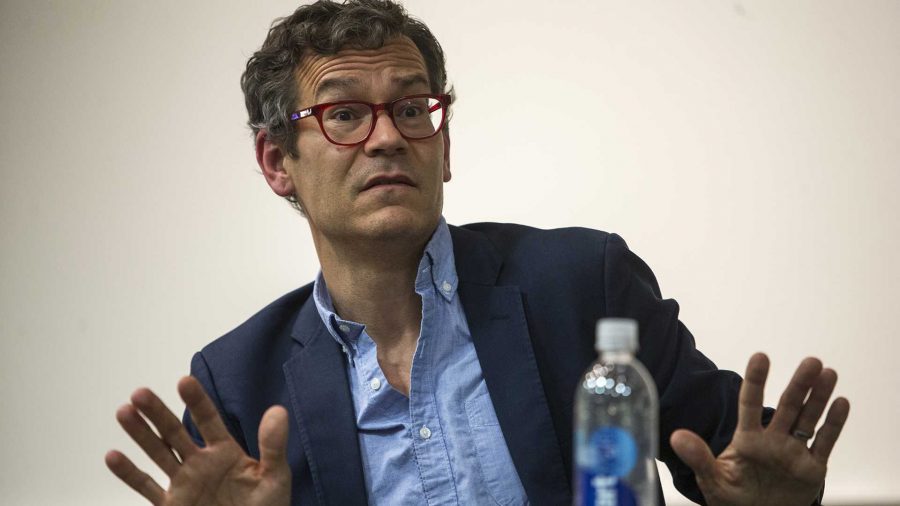Colin Kahl, a former national-security adviser for Joe Biden, said Trump wants to make something clear: He is not former President Obama.
Kahl discussed the future of U.S. foreign policy as part of an A. Craig Baird Forum on Contemporary Politics and Society on Monday evening in the Pomerantz Center.
Kahl has also served as a senior fellow and director of the Middle East Security Program at the Center for a New American Security and a deputy assistant secretary of Defense for the Middle East. He was a counsel on foreign relations and international affairs, a fellow in the Office of the Deputy Assistant Secretary of Defense for Stability Operations, and he is now an associate professor in the Security Studies Program at Georgetown University.
Though Kahl said he does not think people give President Trump enough credit for his overarching vision on foreign policy, he also said Trump’s muscular, but aloof, militarism could be dangerous for the U.S.
“Who is Kim Jong-un supposed to believe?” Kahl said, referring to White House officials writing off Trump’s threats against North Korea.
South Korea is finding, as I have told them, that their talk of appeasement with North Korea will not work, they only understand one thing!
— Donald J. Trump (@realDonaldTrump) September 3, 2017
Despite tensions between the U.S. and North Korea, he said the nuclear threat is nothing new.
“We’ve been living with crazy Kims for over a decade,” he said, referring to the three-generation lineage of North Korean leaders.
The only difference, he said, is the range of the missiles has gotten longer, and suddenly, there’s a direct threat.
“Is there any evidence that he [Kim Jong-un] is crazy?“ he said. “No, there’s no evidence that he’s crazy. Is he a mass murderer? Yes.”
Kahl said the toughest task for the Trump administration is not to deter Jong-un but to persuade South Koreans that Jong-un would trade Seattle for Seoul.
Trump and his administration, Kahl said, need to hug allies like the residents of South Korea when they are threatened, not scold them for being appeasers. He said danger looms if Jong-un can build wedges between the U.S. and South Korea.
Tim Hagle, a University of Iowa associate professor of political science, said that while one could argue that there’s always a lot going on in foreign policy, today’s political climate is particularly tense.
“… If North Korea were to launch missiles at Japan, or South Korea, or Guam, or any U.S. territory or ally, we would be in a position where we would have to choose,” Hagle said. “Are we going to use military action or are we going to sit by and let it happen? That’s going to be a very difficult decision, should it come.”
Another concern, Hagle said, is North Korea’s ability to sell weapons.
“[We’re] not sure what technology is and what they’ll do with it,” he said. “We have commitments to protect [allies] and to help them out in those cases.”
RELATED: Peters officially set to face Loebsack
Christopher Peters, who will challenge Rep. Dave Loebsack, D-Iowa, for Iowa’s 2nd Congressional District seat, was in attendance and said North Korea is the U.S.’s most immediate threat.



